9525 JULY 14, 1905
SASKATCHEWAN AND ALBERTA—
ROADS AND ROAD ALLOWANGES.
Hon. FRANK OLIVER (Minister of the
Interior) moved the second reading of Bill
(No. 195) respecting roads and road allowances in the provinces of Saskatchewan and
Alberta. He said: This Bill is needed to
carry forward in the new provinces the conditions that exist in the Territories at
the
present time in regard to the setting apart
and control of roads and road allowances.
The object is to place under control of the
provincial government the roads now existing and the roads in use, not now legalized
which may hereafter be legalized.
Mr. R. L. BORDEN. If the minister will
permit me, I would ask him to explain the
law as it stands at present. Are these roads
and road allowances still vested in the
Crown, or is the title to them vested in
some corporation? In other words, what is
the condition of the title to the roads and
road allowance and under whose supervision are they now?
Mr. OLIVER. As I understand it, by
similar provisions to those contained in this
Act, the Dominion government a number of
years ago divested itself of the control of
the roads, and placed that control in the
hands of the Territorial government. The
Territorial government exercises all jurisdiction over the roads and road allowances
of
9526
the provinces, that authority having been
delegated by the Dominion.
Mr. R. L. BORDEN. Is that statute repealed by this enactment ? Is this enactment in substitution,
so far as the new
provinces are concerned, of the statute to
which the hon. gentleman (Mr. Oliver) has
just referred ? Does it follow the provisions of that enactment, substantially or
literally ?
Motion agreed to. Bill read the second
time and House went into Committee thereon.
On section 2,
All road allowances in townships now or
hereafter surveyed and subdivided, and all road
allowances set out on block lines now or hereafter surveyed, in the Northwest Territories
within the limits of the province of Saskatchewan or the province of Alberta, as those
provinces are defined in the Saskatchewan Act and
the Alberta Act respectively, the plans of survey of which have been duly approved,
and the
Dominion lands comprised in such road allowances, shall be vested in the Crown in
the right
of the province within which such road allowances are situate.
Mr. SPROULE. According to the principle
of provincial rights, do not the municipal
authorities control these roads in any event?
Property and civil rights are given to the
provinces, and they control all the highways
under municipal laws. In our province, all
roads are under the control of the provincial
authorities, and under control of the municipal authorities through the power given
to municipal corporations. Now would it
not be the same in the Northwest as in
Ontario ?
Mr. OLIVER. I am not versed in the
strictly legal aspect of the question, and I
am not familiar with the conditions in
Ontario ; but I presume this legislation is
based on the fact that the title to the land is
in the Dominion, unless there was some
specific transfer of that right, or title, or
interest, or control. This is a matter of
transfer of control rather than of title.
Mr. SPROULE. What would be the situation providing you were pushing a municipal road through
belonging to the Dominion, what power would you have to tax
those lands for the upkeep of that road ?
You vest all public highways in the province, but you do not vest lands in the province.
Would the province absolutely control highways going through Dominion lands
which were still vested in the federal parliament, and what power would the municipalities
have to tax those lands for keeping up the roads ?
Mr. OLIVER. There is a further provision in this Bill for the purpose of doing
9527 COMMONS
what the hon. gentleman has suggested, that
is, placing the control of a road which has
bene forced through the Dominion lands
in the hands of the province. But of course
there is no power given here, nor does any
exist elsewhere, for the taxation of lands
still remaining in the hands of the Dominion.
Mr. SPROULE. What authority will the
province have now to lay out new highways?
If the municipal corporations wish to lay
out highways through Dominion lands, what
power of expropriation would they have ?
Because it is constantly occurring in our
province that municipalities have to make
the road deviate, it cannot follow a straight
line. What would happen in case the municipality was obliged to encroach upon land
that did not belong to the province?
Mr. OLIVER. I understand there is a
provision in section 5 of the Bill to cover
that point.
On section 3,
Mr. SPROULE. What right will you
have with regard to the width of the road ?
Some require to be wider than others.
Mr. OLIVER. I think there is a generally recognized width of one chain. Many
years ago the old trails were surveyed two
chains in width, but I think that wide
survey has been dropped, and the trails
are now surveyed of the same width as the
ordinary road allowance.
Mr. SPROULE. Could they not go over
that width in case of additions or unevenness of the trail, or where snow blockades
might be heavy ? Otherwise they would be
hampered.
Mr. OLIVER. I think that section 5 covers that point while a special survey is required in the
development of the country.
On section 5,
Mr. SPROULE. It seems to me there
ought to be some provision recognizing the
necessity for a deviation of the line of roads,
in case for instance, where they have to
cross streams.
Mr. OLIVER. This section is to provide
for deviations of roads. The lieutenant governor shall say where a new road requires
to deviate, and in that case a road shall
be so surveyed, and the road thereby becomes vested in the provincial government.
I would like to draw the attention of the
Minister of Justice to these words : ' In
accordance with the system of Dominion
lands survey obtaining in the locality.' It
seems to me those words might conflict with
the idea of a special survey in any direction or in any place which the nature of
the
country would make necessary to secure a
passage.
9528
Mr. FITZPATRICK. I would not like to
say anything about a clause of this sort,
which must have been carefully drafted.
Every word is supposed to have an effect,
and I would not like to suggest any change
in it.
On section 6,—filing of returns of survey
to vest lands in the province.
Mr. SPROULE. Will you always have
to wait until you get the survey approved
by the surveyor general before you can
act ?
Mr. OLIVER. Yes, before the control
finally passes.
Mr. SPROULE. Could you take possession of the land before the consent is given ?
Mr. OLIVER. I think that it is a matter
of adjustment as to how soon possession
can be taken. This provides for the absolute
transfer of control, which cannot be done
satisfactorily until the approval of the plans
and survey by the Surveyor General has
been obtained.
Mr. SPROULE. It would be a very inconvenient thing if you had to wait until
you applied to Ottawa, with all the delays
which usually result, before you can take
possession of a piece of land to make or to
deviate a road. If you had power to take
the land and make the road it would not be
so bad, but if you had to wait until you get
the consent of the government here it would
be very inconvenient.
Mr. OLIVER. I think that it could be
overcome by arrangement between the local
government and the department. That, I
do not think, comes in necessarily in the
consideration of this section. We cannot
positively, finally and actually transfer the
control until we are satisfied what the limits
of the land that we transfer are so that we
would have to have the approval of the Surveyor General of the territory. I think
the
difficulty which the hon. gentleman suggests
will not arise, because that will be a matter
of amicable arrangement between the Dominion government owning the land and the
provincial government which wants to use
it for a road.
Mr. SPROULE. I would think that would
be a difficulty for this reason : Suppose you
want to take a piece of land and suppose
this government has some other object in
view with reference to that land, then, suppose you got the Dominion Land Surveyor
to survey the road, that you took possession
of it, you are afraid to spend money because you do not know whether you are
going to get it or not. There should be
some provision in the Act, whereby under
the control of the Lieutenant Governor in
Council a surveyor could be sent out and
survey what is needed, because the local
conditions would be better known there
than elsewhere, and whereby they could
9529 JULY 14, 1905
take what is needed for the road and then
get the consent from the federal government
down here. If they must always wait before doing any work until consent is obtained
I am inclined to think there would be
some difficulty at times. I do not think you
could do anything unless it were put in the
law. You cannot leave anything to be
adjusted between two governments outside
of law.
Bill reported, read the third time and
passed.
ARBITRATION WITH THE GRAND
TRUNK RAILWAY.
House in committee on Bill (No. 199) to
amend an Act respecting an arbitration between His Majesty and the Grand Trunk
Railway Company of Canada—Mr. Fitzpatrick.
Mr. R. L. BORDEN. Would the hon. Minister of Justice be good enough to tell us
what this Bill accomplishes ?
Mr. FITZPATRICK. I think I cannot do
better than read the memorandum which has
been handed to me by the third arbitrator.
Mr. FITZPATRICK. Mr. Shepley is the
arbitrator for the government; Mr. Ladeur
of Montreal is the arbitrator for the Grand
Trunk Railway Company and Mr. Justice
Killam is the third arbitrator. The memorandum is as follows :—
The Bill now proposes to amend the Act of
1904 by giving the arbitrators power to make
several awards on the different points and disputes that have arisen. In this way
much expense will probably be avoided, for if an adverse award is given upon any particular
dispute it will not be necessary to go into the
amount that may be claimed under it, so that
the expense upon the inquiry into the amount
of damages would be avoided. It also provides
that disputes arising since the beginning of
the proceedings up to 1st January, 1905, may
be referred for adjudication.
After the reference was made certain
claims were discovered on both sides which
had been put forward in addition to those
which had been put forward at the time the
arbitration was initiated.
It also provides that clause 13 of the Railway
Act, which enacts that the railway commissioners shall devote the whole of their time
to the
Railway Commission, shall not apply to any of
the arbitrators.
This provision is inserted to avoid disqualifying Mr. Justice Killam, who has already
heard a very considerable portion of
the case.
Mr. R. L. BORDEN. Is this the board of
arbitrators to whom was referred disputes
in reference to the traffic agremeent between
the government and the Grand Trunk Railway in 1899 or 1898 ?
9530
Mr. FITZPATRICK. These are the arbitrators who have been appointed to decide
on the claims that have arisen under two
agreements; first the agreement of 1879 which
provided for the acquisition by the government of that portion of the Grand Trunk
Railway from Riviere Du Loup to Levis,
and second under the agreement of 1899
which provides for the acquisition by Canada of what is called the Drummond County
Railway. In both of these agreements provision is made for the submission to arbitration
of difficulties which may arise.
Bill reported, read a third time and
passed.
SUPPLY—RIGHTS OF CANADIANS IN
SOUTH AFRICA.
Mr. A. C. MACDONELL (South Toronto).
Mr. Speaker, before the House goes into
Committee of Supply, I desire very briefly
at this late stage of the session, to call
the attention of' the government to a matter
of considerable importance to certain Canadian citizens who have been deprived of
their rights in connection with large mining
interests in South Africa. The facts as represented to me are shortly these: prior
to
the year 1897, a gentleman named R. E.
Brown. an American citizen, secured for
himself and certain other persons associated
with him (some of them being Canadians)
about 1,200 valuable mining claims on what
is known as the farm Witfontein in the
district of Potchefstroom in the South
African Republic. These claims were pegged
out and rightfully owned by Mr. Brown,
but the president of' that republic, Mr. Kruger, denied the right of Mr. Brown and
his
associates to these claims and refused to
issue licenses or leases. Mr. Brown, representing himself and his associates, applied
to
the courts of the South African Republic
and on their behalf brought an action
against Dr. Leyds, the secretary of the executive of Mr. Kruger; and also against
the
clerk of the district in which these mining
lands were situated—asking that licenses
should issue to him in accordance with the
law. In that action Mr. Brown recovered a
judgment as prayed for by him. The full
court determined that he was entitled to
have issued to him licenses for these lands,
and in default he was awarded damages
commensurate with the estimated value of
the claims. These damages were assessed at
£720,400, so that it will be seen that the
amount involved is very large. That judgment was rendered by the High Court of
the Reipublic of South Africa on the 22nd
of January. 1897. Immediately after this
judgment. Mr. Kruger sought to thwart its
execution in order to deprive Mr. Brown
and his associates (some of whom were
Canadians) of the benefits thereof. Mr. [...]


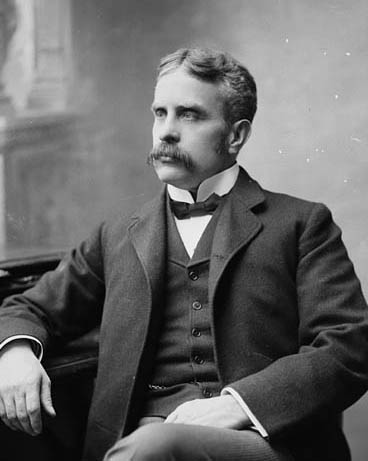
 Cet individu a participé aux :
Cet individu a participé aux :
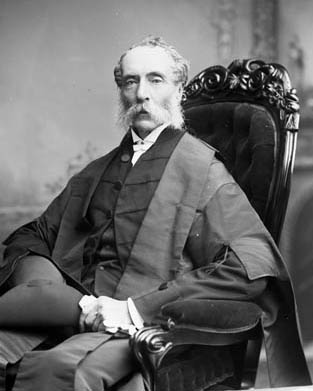
 Cet individu a participé aux :
Cet individu a participé aux :
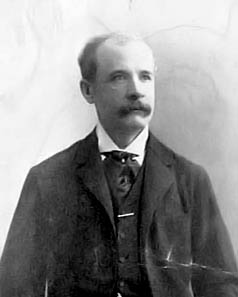
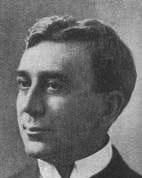
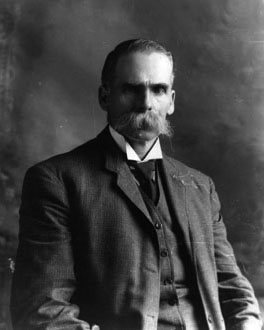
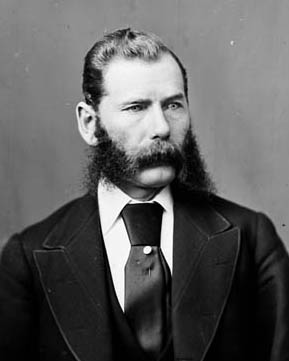
 Cet individu a participé aux :
Cet individu a participé aux :